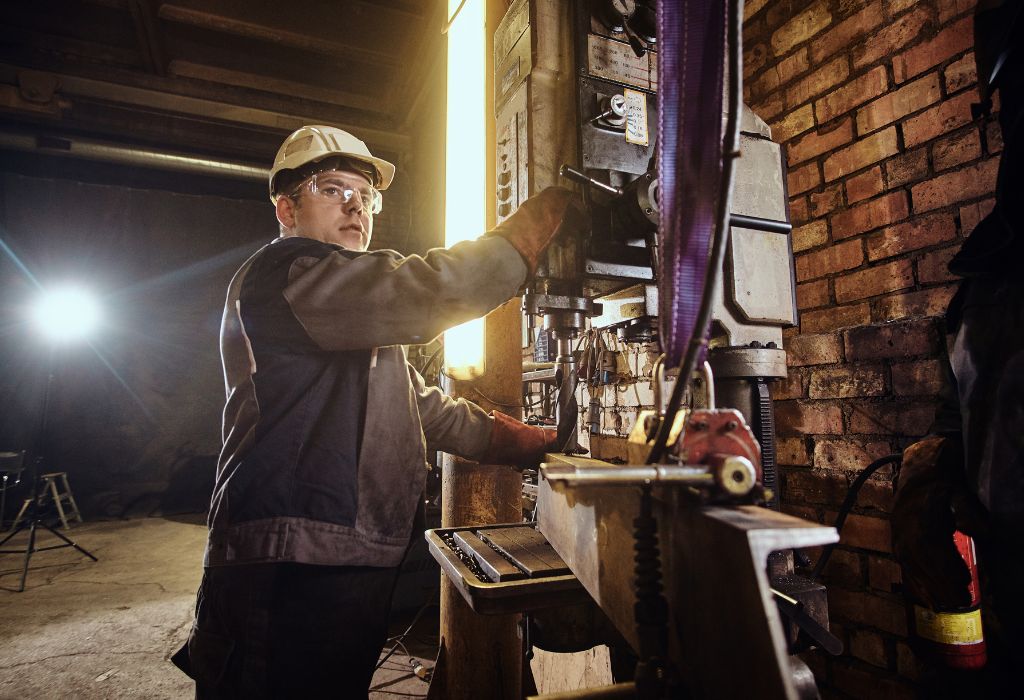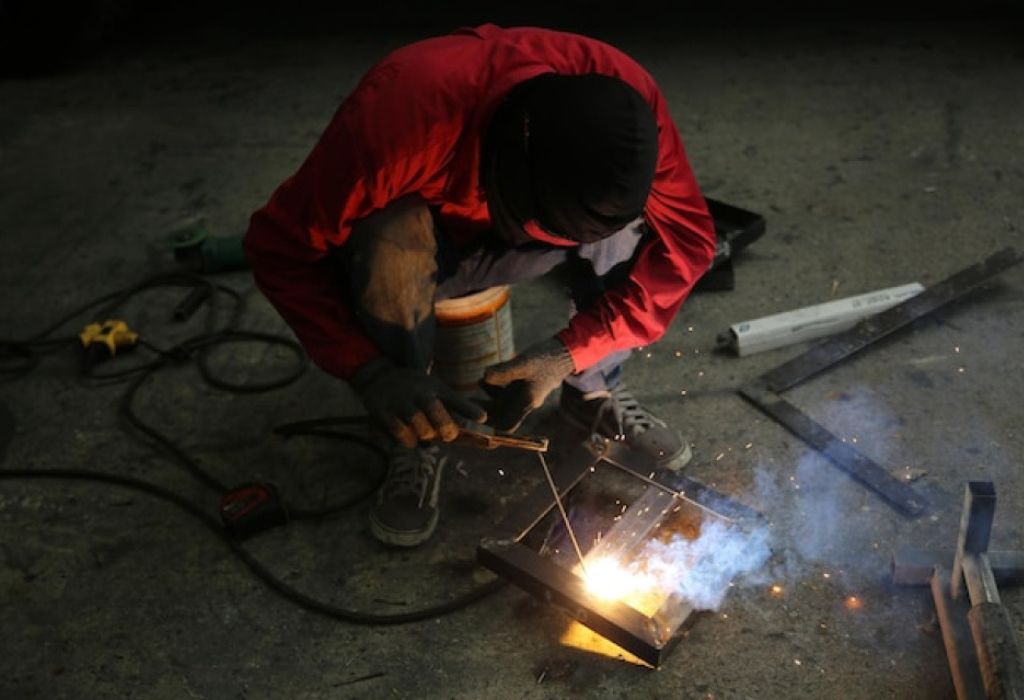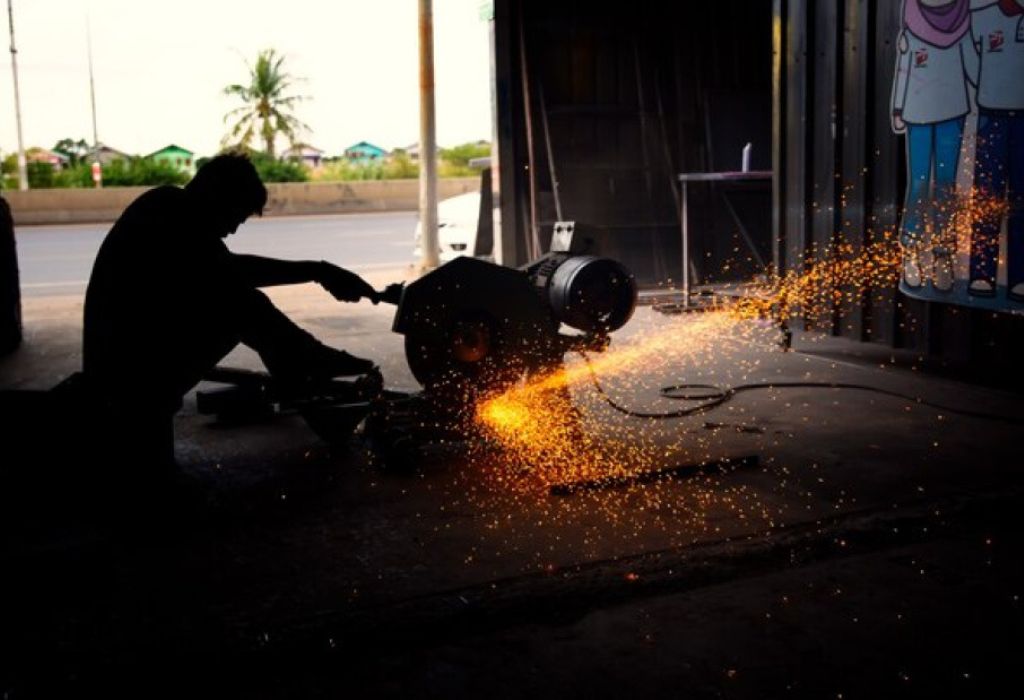California is known for its booming industries, from aerospace to construction, but for welders the biggest question remains: how much does a welder make in California in 2025?
The answer is not as simple as one figure, because pay depends heavily on skill level, certifications, and location.
Imagine two welders—one working entry-level in a small town, the other certified and employed in a high-demand city like Cupertino.
Their paychecks could differ by tens of thousands of dollars annually, even though they share the same trade.
This variation creates both uncertainty and opportunity for anyone entering or advancing in the field.
According to Indeed, the average hourly pay for welders in California is $26.86 (Indeed). Glassdoor estimates a median annual salary of $60,000 (Glassdoor).
These numbers highlight that welders in California can earn significantly more than the national average, but also face high competition and rising living costs.
The real challenge is understanding what factors push wages higher and which paths offer long-term stability. Certified welders, union members, and those with advanced skills often command the best salaries.
On the other hand, beginners may struggle to cover California’s expensive lifestyle until they build experience.
This article breaks down not just the averages, but the real-world differences across regions, industries, and roles.
By the end, readers will know exactly where opportunities lie, what certifications matter most, and how to maximize pay in a state where every dollar counts.
What Is the Current Salary Landscape for Welders in California?

The salary landscape for welders in California is diverse, reflecting experience, skill levels, and industry demand. Most reports show welders earning above the national average, but the range is wide depending on the data source.
The average hourly wage is reported between $22 and $27, which translates to annual earnings of about $45,000 to $60,000. These figures place California among the higher-paying states for welders, though competition and living costs remain significant factors.
Median salaries highlight even greater potential, with some welders earning well above $70,000 annually. High-demand sectors, such as construction and aerospace, push wages beyond the state average.
Overall, welders in California are positioned to earn strong wages compared to other states, but outcomes vary greatly between entry-level and top-tier professionals.
What is the average pay per hour in California?
The average hourly pay for welders in California ranges between $21.97 and $26.86.
What is the median annual salary?
Median annual pay spans from about $48,590 to $60,000 depending on the data source.
How high can top earners go?
Top earners may exceed $80,000 annually or $34 per hour in certain industries.
How does California compare to the national average?
California welders earn about 10–15% more than the national median wage.
What industries pay the highest within the state?
Aerospace, government, and specialized construction are among the highest-paying industries.
📊 Statistic to include: “ZipRecruiter reports California welders earn an average of $21.97/hour, or about $45,692 annually” (ZipRecruiter).
Salary by Data Source: Comparing Key Platforms
Different salary platforms report varying figures for welders in California. These differences stem from how each platform gathers data, sample sizes, and whether additional pay like overtime or bonuses are included.
Indeed reports the average hourly pay for welders in California at $26.86, placing annual earnings close to $56,000. ZipRecruiter, on the other hand, lists an average of $21.97 per hour, or around $45,692 annually.
Glassdoor highlights a median total pay of $60,000 per year, factoring in base pay plus bonuses and other forms of compensation. CareerExplorer provides an even broader range, reporting salaries between $36,560 and $75,730 annually depending on experience and role.
Meanwhile, Talent.com places the average yearly income at around $44,850, while Salary.com often lists higher top-end salaries, exceeding $70,000 in some regions.
These discrepancies demonstrate why welders should consult multiple sources before evaluating career prospects, as each dataset reflects different perspectives of the job market.
Why do figures differ between sources?
Each platform uses unique data collection methods, including surveys, employer reports, or user submissions.
Which source shows the highest average?
Glassdoor currently lists the highest median total pay at about $60,000 annually.
Which source shows the widest range?
CareerExplorer displays the widest spread, from $36,560 up to $75,730 annually.
Does overtime affect reported salaries?
Yes, platforms that factor in overtime and bonuses often show higher totals.
Which platform is most reliable?
No single platform is perfect; using multiple sources provides a clearer picture.
Pay Variation by Certification, Experience & Role
Welding salaries in California are not uniform, and the biggest differences come from certification, years of experience, and specific job roles. Certified welders consistently earn more than non-certified professionals, as credentials prove mastery of specialized skills.
According to Indeed, certified welders in California average $29.11 per hour, which is several dollars higher than the statewide average. This means certifications alone can boost annual income by more than $4,000 compared to uncertified peers.
Experience also shapes pay significantly. Entry-level welders often start around $17–$19 per hour, while senior or highly skilled welders can command $27–$34 per hour. This progression reflects both skill development and the ability to take on more complex projects.
Specialized roles, such as underwater welding or working in aerospace, carry premium wages. In some cases, these positions can pay double the average hourly rate due to higher risk and skill requirements.
Union membership also contributes to earnings. In Los Angeles, for example, union welders earn an average of $98,000 annually, which far surpasses the state median.
How much can a certified welder earn in California?
Certified welders average $29.11 per hour, higher than the statewide mean.
How does experience impact salary levels?
Beginners may earn $38,000 annually, while senior welders can reach $60,000 or more.
Do unions significantly increase pay?
Yes, union welders in Los Angeles average $98,000 annually, far above non-union wages.
Which roles pay the most?
Specialized welding in aerospace, defense, and underwater work pay the highest rates.
Is certification worth pursuing?
Yes, certifications often lead to higher wages, better job security, and advancement opportunities.
📊 Statistic to include: “Indeed lists certified welders in California at $29.11/hour, about 10% higher than the average welder” (Indeed).
Location-Based Pay Differences (Cities & Industries)

Geography plays a major role in how much welders make in California. Salaries differ widely between rural towns, metropolitan hubs, and specialized industry zones. High-paying cities often reflect both stronger demand and a higher cost of living.
According to ZipRecruiter, cities such as Soledad, Berkeley, and Cupertino consistently offer the best wages. Welders in these locations often earn 10–25% more than the state average, with salaries exceeding $65,000 annually in some cases.
In contrast, rural regions may pay closer to $42,000–$45,000 per year, leaving welders in those areas with smaller paychecks despite similar skill sets. Relocating to a higher-paying city can mean a substantial income boost.
Industry also influences wages. Welders employed in government, aerospace, and defense see some of the highest pay in California, while those in general construction or small manufacturing firms earn closer to the average range.
Which city pays welders the most in California?
Soledad leads the list, with average salaries around $69,000 annually.
Are Bay Area cities good for welders?
Yes, cities like Cupertino and Berkeley often pay 15–25% above the state average.
Which industries offer the best pay?
Aerospace, defense, and government contracts provide the highest wages.
Do rural welders earn less?
Yes, welders in rural areas may earn closer to $42,000 annually, significantly below metro averages.
Does the cost of living affect wages?
Yes, higher-paying cities like Berkeley balance salaries with higher living costs.
📊 Statistic to include: “ZipRecruiter lists Soledad as one of the highest-paying cities for welders in California, with average salaries near $69,000 per year” (ZipRecruiter).
How to Maximize Earnings as a Welder in California
Welders in California have multiple strategies to increase their earning potential. Beyond location, factors such as certifications, advanced skills, and work schedules directly influence income.
One of the most effective steps is obtaining advanced certifications. For example, certified welders average $29.11 per hour, compared to the statewide average of $26.86. This difference compounds significantly over the course of a year.
Specialized skills also carry weight in the job market. Mastery of TIG welding, MIG welding, flux-core techniques, and blueprint reading can make a welder more competitive and raise wages. Employers value technical versatility, especially in industries like aerospace and defense.
Union membership further enhances pay opportunities. Welders in strong unions often benefit from higher base pay, overtime rates, and comprehensive benefits packages. In Los Angeles, union welders report average annual salaries nearing $98,000.
Working overtime or night shifts is another proven method for boosting income. Many California welders see their annual earnings increase by 15–25% through consistent overtime hours.
Q&A Section
What certifications increase welder pay in California?
Certifications such as AWS Certified Welder can push wages above $29 per hour.
Which skills are most valuable to employers?
Skills in TIG, MIG, flux-core welding, and blueprint reading are in high demand.
Does joining a union really help?
Yes, union welders in Los Angeles average close to $98,000 annually.
Can overtime significantly raise earnings?
Yes, regular overtime and night shifts can add thousands to annual income.
Should welders relocate for better pay?
Relocating to high-pay cities like Soledad or Berkeley can boost yearly salaries by 15–25%.
📊 Statistic to include: “Union welders in Los Angeles earn an average of $98,000 annually, well above the California median” (Comparably).
Future Trends & Job Market Outlook

The job market for welders in California is projected to remain steady, with certain industries driving long-term demand. Infrastructure projects, aerospace expansion, and renewable energy development continue to create opportunities for skilled welders.
According to the Bureau of Labor Statistics, employment for welders across the U.S. is expected to grow by about 2% between 2022 and 2032 (BLS). In California, this growth is fueled by government investments and private-sector contracts.
Automation has entered the welding field, particularly in manufacturing, but it is not replacing highly skilled welders. Instead, it increases the value of workers who can combine manual expertise with knowledge of automated systems.
Overall, California welders who pursue advanced skills and certifications are well positioned to secure stable employment and higher wages in the coming decade.
Q&A Section
Is demand for welders growing in California?
Yes, infrastructure projects and aerospace contracts maintain steady demand.
Does automation threaten welding jobs?
Automation is rising, but it complements rather than replaces skilled welders.
Which industries will hire the most welders?
Construction, aerospace, defense, and renewable energy will offer the strongest growth.
Will wages rise in the next decade?
Yes, wages are projected to grow steadily as demand for specialized welders increases.
📊 Statistic to include: “The Bureau of Labor Statistics projects a 2% growth rate for welders between 2022 and 2032” (BLS).
Conclusion
Welders in California have some of the best earning opportunities in the nation, but salaries vary widely by certification, experience, industry, and location. Entry-level welders may start around $38,000 annually, while certified or union professionals in high-demand sectors can exceed $80,000.
The key to maximizing income lies in pursuing certifications, honing advanced skills, joining unions, and considering relocation to higher-paying cities. With steady demand in industries like construction, aerospace, and renewable energy, welders who adapt and upskill are set to thrive.
For anyone considering a welding career in California, the path forward is clear: specialize, certify, and stay alert to opportunities in high-growth sectors. By taking these steps, welders can build a stable and rewarding career in one of the country’s most competitive markets.

I’m Darrell Julian, the founder, lead writer, and hands-on welding enthusiast behind ArcWeldingPro.com. With more than 15 years of real-world welding experience, I created this platform to share what I’ve learned in the field, in the shop, and in the heat of the arc.


